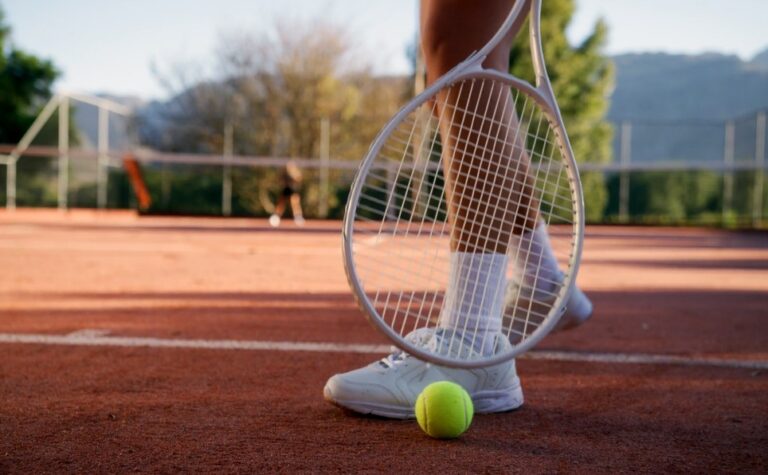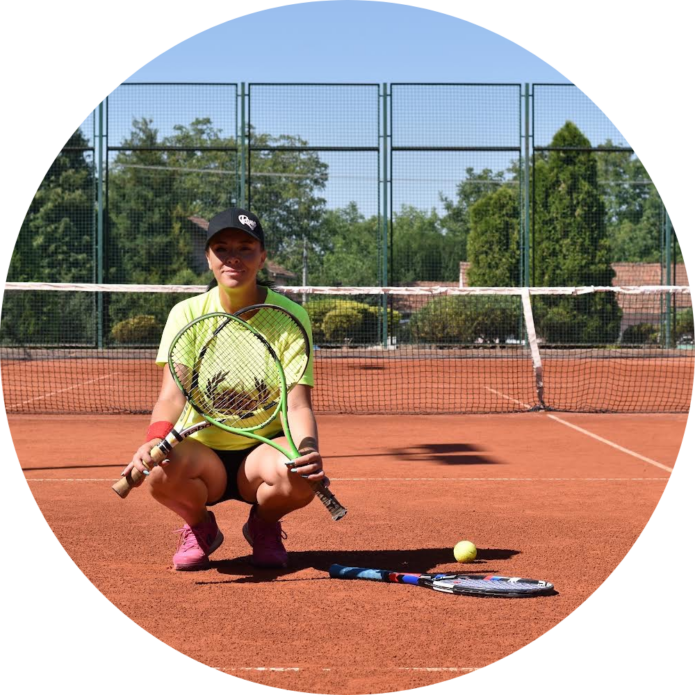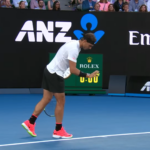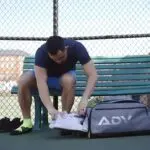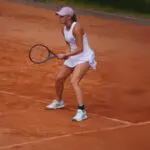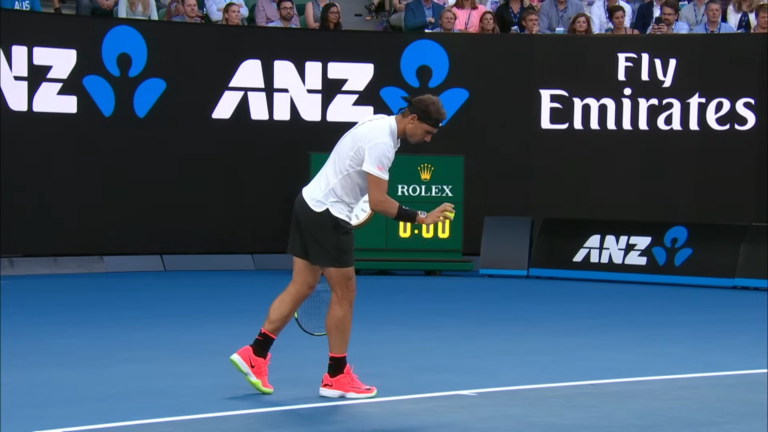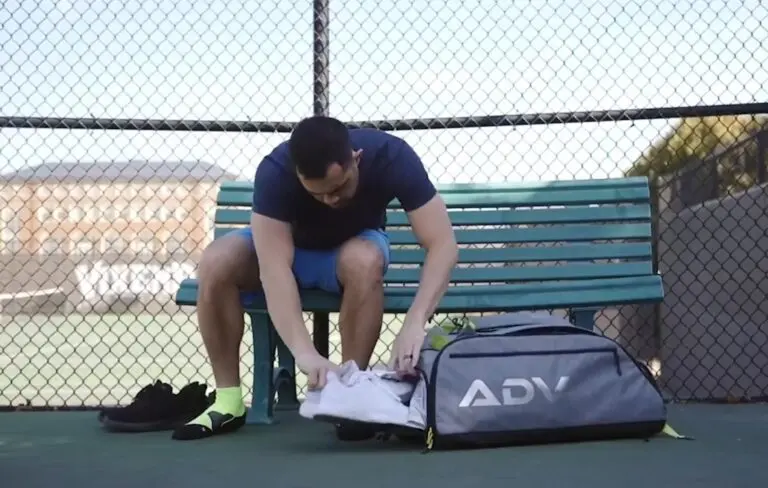When the clay court season swings into action, every detail counts, and the choice of tennis balls can significantly impact your game. Clay surfaces present a unique set of challenges and demands, making the selection of the right tennis ball not just a matter of preference, but a strategic decision.
On the red terrain, where the bounce is high and the game is swift, selecting a ball that suits the surface can be as crucial as your choice of footwear. This article is your ally in finding that perfect tennis ball, ensuring your next match on clay is not just a battle of skill, but also a showcase of impeccable preparation.
1. Teloon Pressure Training Tennis Balls
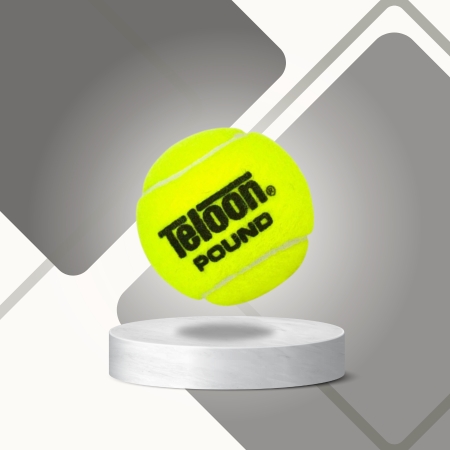
These balls, with their distinctive yellow hue, stood out against the clay, offering a consistent bounce that didn’t falter even after several sets. They felt robust, designed to endure the abrasive nature of clay courts.
They didn’t fluff up excessively, which often happens with lesser quality balls on clay, and this helped in maintaining a predictable trajectory during long rallies. However, while their performance was reliable, I found them slightly heavier on the racket, which required an adjustment to my swing.
Even after hours of drills and play, they retained their firmness and responsiveness. For players who spend a lot of time on the court and go through countless cans of balls, this could be a cost-effective option. While my experience wasn’t flawless, I believe these balls are a solid choice for regular training sessions on clay.
Key Features
| Core Material | Natural Rubber |
| Felt Type | Interlocked Wool Fiber |
| Rebound Height | 135-147cm |
| Deformation | 0.22-0.26 inches |
| Weight | 56.0-59.4g |
| Color | High Visibility Yellow |
- Consistent bounce
- Durable on clay
- Maintains pressure well
- Slightly heavier feel
- Adjustment to swing needed
2. WILSON Roland Garros Clay Tennis Ball
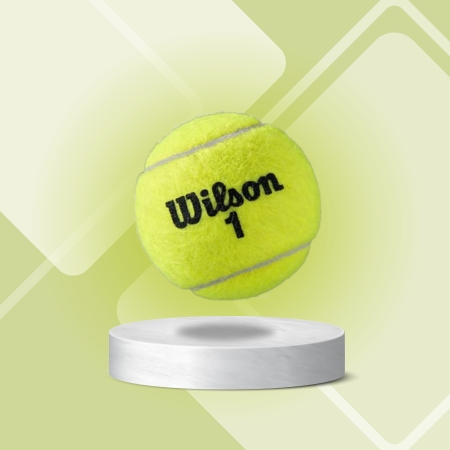
My initial impression was one of quality; these balls are, after all, crafted for the pinnacle of clay court tournaments. They come with a promise of elite performance, and during my sessions, they’ve largely delivered. The felt is noticeably finer and denser, which seems to lend a more controlled flight path through the air, something that’s crucial when playing on the slower, more demanding clay surface.
The balls’ durability was commendable; they withstood the abrasive nature of the clay without losing much of their initial vitality. This resilience is a boon for any player who values a long-lasting ball.
However, I did find that they felt slightly different from the standard hard-court balls in terms of weight and response, which required some adjustment in timing and power. Despite this, the overall experience was positive, and I see these as a worthy option for serious clay court play.
Key Features
| Core Composition | Core designed for clay |
| Felt Quality | High-density felt |
| Approved by | ITF and FFT |
| Pack Quantity | 4 balls per tube |
| Special Feature | Clay specific performance |
| Visibility | Fluorescent yellow |
- Superior felt quality
- Durable on clay
- ITF and FFT approved
- Adjustment period needed
- Different weight feel
3. Penn Championship Tennis Balls
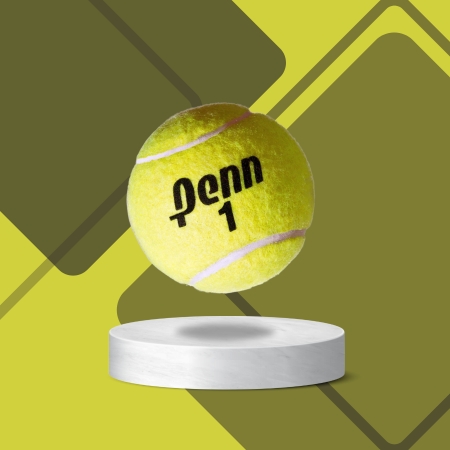
Known for their versatility, these balls are a common sight on many public courts. From the first serve, the classic feel is evident. They strike a balance between responsiveness and control, which is crucial for players who transition between different court types.
The felt on these balls is less fluffed up than some of the other brands I’ve tried, which contributes to a more consistent flight path and bounce. They’re noticeably durable, which is a plus for anyone who doesn’t want to replace their balls too frequently.
While they are marketed for all court surfaces, on clay, they performed adequately, though I noted they picked up more of the court material than some of the specialized clay court balls. This didn’t drastically affect play but was noticeable during longer sessions.
Key Features
| Natural Rubber | Optimal consistency |
| Interlocked Wool Fiber | Longer wear |
| Elastic Seams | Reduced cracking |
| USTA and ITF Approved | Official standards met |
| Packaging | Recyclable, 3-ball can |
| Usage | All court surfaces |
- Good for all courts
- Durable felt cover
- Consistent performance
- Picks up clay
- Slightly heavier
4. Magicorange Advanced Tennis Balls
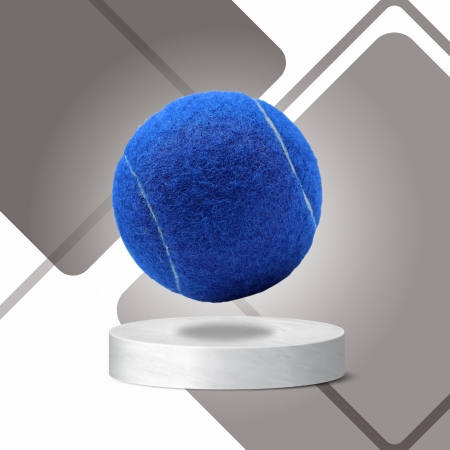
On the clay, their performance was quite admirable; they offered a reliable bounce and seemed to resist the typical wear that comes from the gritty surface. The Magicorange balls felt lively off the racket, providing a satisfying pop that’s often sought after by players who enjoy a vigorous game. They seemed to maintain their pressure well, session after session, which is a testament to their construction.
However, I did notice they were a bit more prone to losing their felt covering faster than I would have liked, which affected their long-term usability. For players who are in the market for an alternative to the mainstream options, the Magicorange Advanced Tennis Balls are worth considering.
Key Features
| Core Construction | Dynamic rubber for bounce |
| Felt Material | Durable wool blend |
| Bounce Height | Consistent performance |
| Visibility | Vibrant optic yellow |
| Water Resistance | Improved in wet conditions |
| Pack Size | 4-ball can |
- Lively bounce
- Good for skill development
- Resists water well
- Faster felt wear
- Less known brand
5. Pro Penn Marathon Tennis Balls
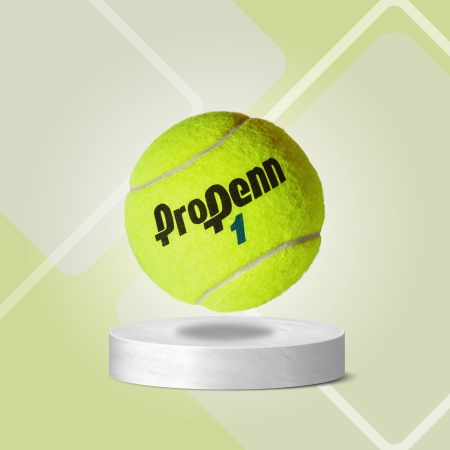
The Pro Penn Marathon balls are designed with longevity in mind, featuring Encore Technology for a longer lifespan and Smart Optik Felt for improved visibility. They’ve maintained a consistent performance throughout several intense matches, with minimal fluffing and no significant loss in bounce or feel. While they are engineered for extended play, I did find that they felt slightly heavier, which required some adjustment in my strokes and serves.
For players who value durability and extended play, the Pro Penn Marathon Tennis Balls are a commendable choice. They hold up well against the rigorous demands of clay court play, and their visibility on the court is excellent.
Key Features
| Technology | Encore Technology for durability |
| Felt | Smart Optik Felt for visibility |
| USTA Approved | Meets official play standards |
| Pack Quantity | 3 balls per can |
| Recommended Court | All court surfaces |
| Extra Feature | RFID enabled for authenticity |
- Exceptionally durable
- High visibility on court
- Maintains bounce well
- Heavier feel
- Stroke adjustment needed
6. Dunlop Sports ATP
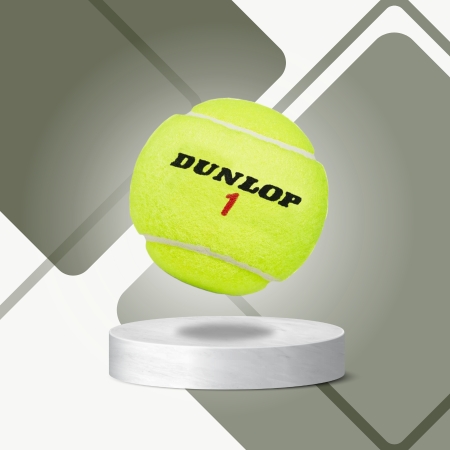
They’re robust and responsive, providing the kind of feedback that competitive players seek. Their construction is solid, featuring an HD Pro Core and HD Pro Cloth, which contribute to their consistent performance and longevity. On clay, they gripped the surface well, offering a reliable bounce and trajectory. However, they did seem to pick up more clay than some other balls, which slightly altered the playing experience over time.
For those who play frequently and at a high level, the Dunlop Sports ATP Championship Tennis Balls are a strong contender. They deliver the performance expected of a ball used in professional tournaments.
Key Features
| Core | HD Pro Core for playability |
| Cloth | HD Pro Cloth for durability |
| Approval | Official ATP ball |
| Quantity | 24 cans per case, 3 balls per can |
| Usage | Professional and competitive play |
| Additional | Fluoro Cloth for high visibility |
- Professional-grade quality
- Consistent playability
- Durable construction
- Picks up clay easily
- May require adjustment
7. Babolat Gold Championship (All Court) Tennis Balls
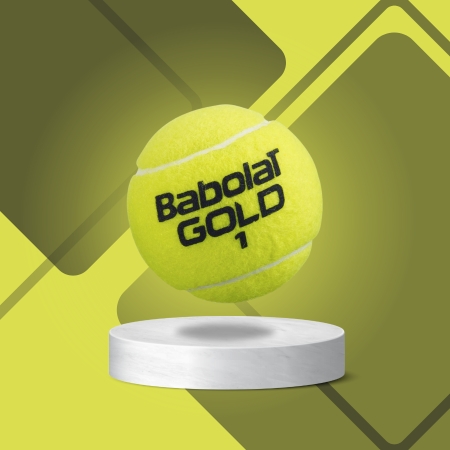
Marketed as an all-court ball, they’ve been put through their paces on my local clay courts. The first thing I noticed was their robust construction, which seemed to fare well against the demanding clay surface.
The Babolat Gold balls are designed with a classic feel and a focus on durability. They feature a rubber core that’s engineered for a consistent bounce and a felt that withstands the rigors of play across different surfaces. On clay, they performed admirably, offering a reliable bounce and minimal fluffing, which can often be a concern on such a surface.
While they are suitable for all courts, I found their performance on clay to be particularly impressive, although they did seem to lose a bit of their initial liveliness quicker than I expected.
Key Features
| Core Type | Classic Pressure |
| Felt Composition | Extra-Duty Felt |
| Bounce Quality | Consistent Bounce |
| Visibility | Vivid and Easy to Spot |
| Design | Optimized for All Court Surfaces |
| Packaging | 4 Balls per Can |
- Great for multiple surfaces
- Durable construction
- Consistent bounce
- Loses liveliness sooner
- Not surface-specific
Buying Guide
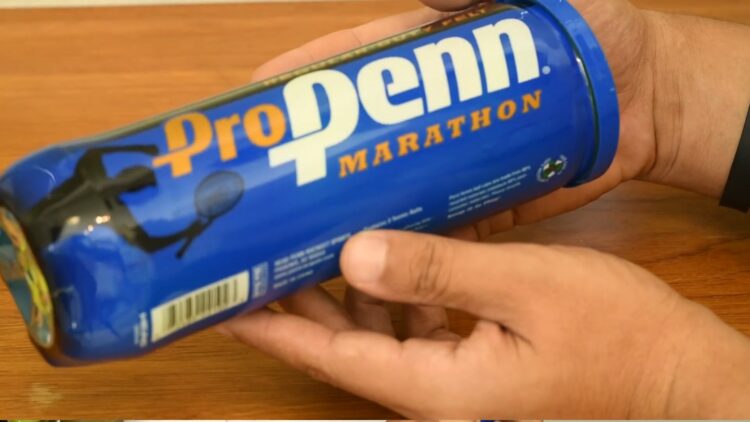
When it comes to buying tennis balls, the options can be as varied as the playing styles and surfaces they are designed for. Whether you’re a seasoned pro or a weekend warrior, the right tennis ball can elevate your game.
Here’s a concise guide to help you navigate your choices and find the tennis balls that will serve you best.
Understand the Types of Tennis Balls
- Pressurized Balls: These are the most common type of tennis balls, offering a lively bounce and a fresh, crisp feel. They are packed with air and have a hollow core, which makes them great for competitive play but they do lose pressure over time.
- Pressureless Balls: These balls have a solid core and tend to last longer. They’re ideal for practice sessions and players who don’t want to replace their balls too often.
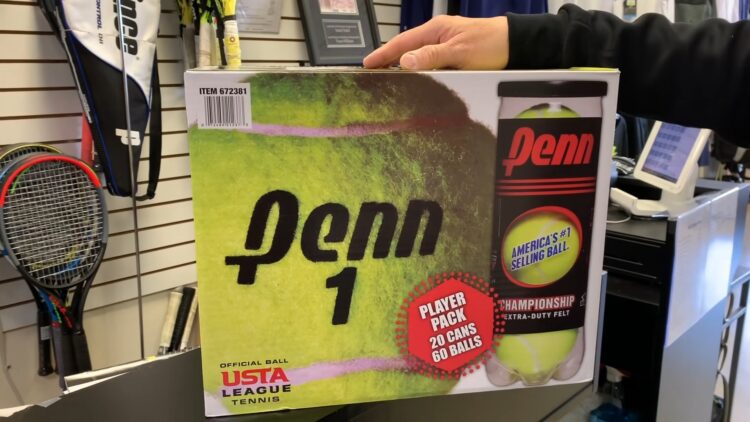
Consider the Court Surface
- All-Court Balls: Versatile and designed to perform on any surface, these balls are a safe bet if you play on different types of courts.
- Clay Court Balls: They typically have a denser felt to prevent clay from sticking to them and often come in a brighter hue for better visibility.
- Grass Court Balls: These have a higher nap, which helps them move faster on the slick grass surface.
- Hard Court Balls: They are designed to be extra durable to withstand the rougher surface of hard courts.
Durability and Playability
- Durability: If you play frequently, look for balls that are known for their longevity and resistance to wear.
- Playability: Consider how the ball feels off your racket and how it responds to spins and speed.
ITF Approval
- Ensure that the balls are approved by the International Tennis Federation (ITF), especially if you play in tournaments.
Bulk Options
- If you play often, consider buying in bulk (like a case of 24 cans) to save money in the long run.
Player Level
- Beginners: Might prefer slower balls that provide more control.
- Advanced Players: Often opt for faster balls that offer a consistent bounce and respond well to spins.
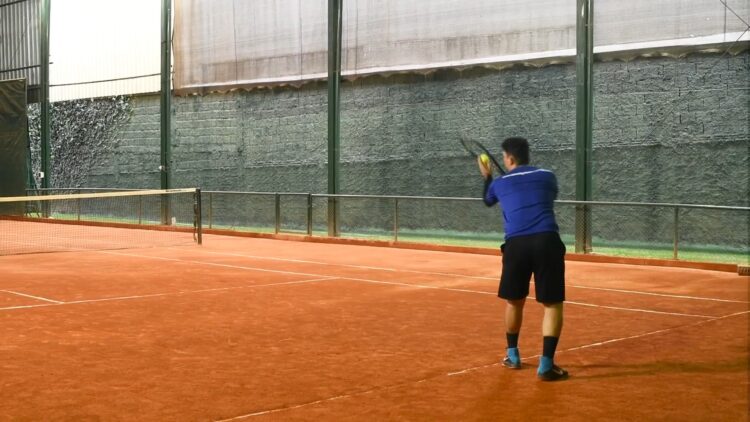
Brand Reputation
- While brand isn’t everything, companies with a long-standing reputation in tennis often provide a level of quality and consistency in their balls.
Price
- Balance cost with quality. While the most expensive balls aren’t always necessary, the cheapest may not provide the best value over time.
Environmental Considerations
- Some brands offer eco-friendly options, such as recyclable packaging or balls made with sustainable materials.
Personal Preferences
- Ultimately, the best tennis ball for you is one that suits your feel and style of play. It’s worth trying different types to find your personal favorite.
Frequently Asked Questions
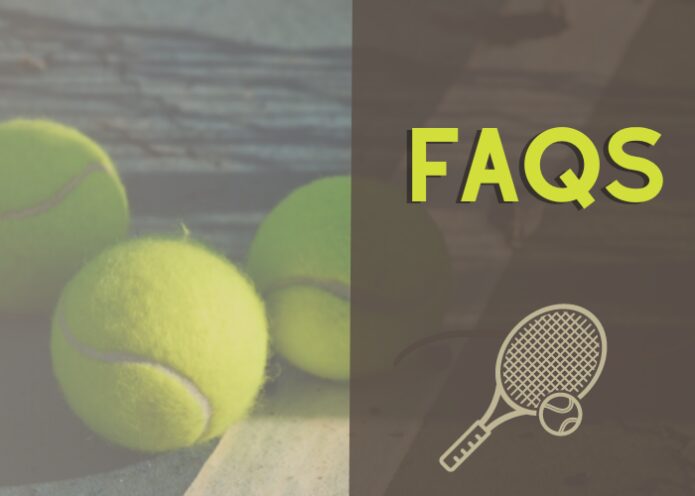
1. Are Clay Court Tennis Balls Unique?
The simple answer to this is yes. Factories make different balls for different surfaces. The ones that suit the lawn are not the ones that suit the hard floor.
2. Can You Use Hard Court Balls On Clay Courts?
Mud is softer than hard courts. Based on this fact, manufacturing companies developed thick extra duty ones for hard floors. Being thick it doesn’t wear out fast and lasts for a long time.
3. Are Clay Courts Slower?
Yes, it is. Compared to the other surfaces, clay is the slowest one hence it often hampers the momentum of the ball.
4. What Are The Differences Between Pressurized And Pressureless Balls?
The first one maintains a shaggy outer cover whereas the second one contains a neat material.
5. Why Is It Hard To Play On Clay?
Mud courts usually are textured so generally, it delays the ball and produces a high leap in contrast with grass or hard courts. Therefore, the muddy court removes a significant amount of the benefits of large servers.
Conclusion
If you’re fighting to deliver your best performance on the muddy ground, it might be something to do with the type of ball you use.
So now that you have learned about a variety of Best Tennis Balls For Clay Courts depending on the category of the courts, you’re prepared to ace your upcoming games.
Related:
- Top 19 Best Tennis Bags 2024 [Unbiased Reviews]
- 20 Best Tennis Shoes 2024 - Stylish and Athletic
- 18 Best Tennis Racquets 2024 - Exclusive Reviews &…
- 15 Best Tennis Balls 2024 - USTA and ITF Approved
- 15 Best Tennis Racquet for Beginners & Intermediate…
- 10 Best Tennis Ball Machine 2024 - Perfect for Solo Players

